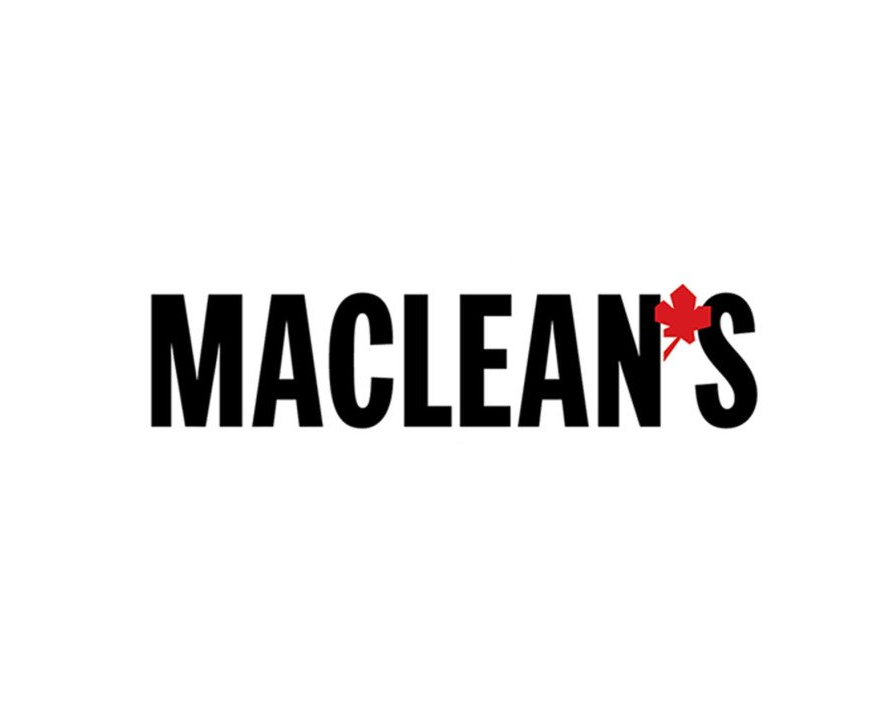2020 Ontario Pre-Budget Submission
Tim Berezny • January 10, 2020
A SYSTEM IN NEED OF REBALANCING
Helping Ontarians live well at home through home and community care
Introduction
At the heart of our health care system are Ontarians who need and receive critical health services at home and in their communities. This point is often lost in the discussions about hallway health care, the alternate level of care (ALC) issue and health system transformation. This submission will tell the stories of Eric, Joy and Albert to illustrate the way the current health care system shapes the lives of everyday Ontarians and how the impact of home and community services can help to rebalance outcomes.
In 2019, a record 5,400 patients in Ontario hospitals were designated ALC and in June, there were over 1,000 people being treated in hospital hallways across the province.1 Not only is this an ineffective use of limited resources, it is a situation that no patient or family member wants to experience. In fact, the cost of caring for a single patient using an ALC bed for one year is comparable to three people living safely and independently at home and in their communities in the same period.
DOWNLOAD FULL REPORT
Our health system needs to be drastically, yet safely, rebalanced to better serve people. Home and community care services have untapped potential to help end hallway health care and reduce the demand for more expensive institutional settings like hospitals and longterm care. A recent study found that the biggest concern of people transitioning home from hospital was not enough publicly funded home care services to meet their needs.2 The development of Ontario Health and Ontario Health Teams (OHTs) are a key opportunity to strengthen the home and community care sector by enhancing integrated care across the entire health care system.
We know that if no changes are made, the waiting list for long-term care is expected to balloon to 40,000 people over the next few years. This is a situation that can be alleviated. Last year, almost 18,000 people living in longterm care homes could have continued to live at home and in their communities if the proper supports were available and appropriately funded.3
Ontarians, like Joy and Eric, wish to receive care at home and in their community, but systemic issues can prevent that from happening, costing all of us in the long run.
Share
More Updates

Today’s on-going political unrest and large-scale protests are a clear reflection of systemic racism and have real impacts on individuals and their health in our communities in Ontario. This kind of discriminatory hurt can pull apart the communities that we all live and work in. Systemic racism impacts the delivery of health and social services for many minorities including Blacks, Indigenous people and People of Colour. There is strong evidence now that COVID-19 has augmented these systemic inequalities. It is only by acknowledging these impacts and their root causes that we can start addressing them. At OCSA, we commit to listening and learning from those who experienced this every day in order to ensure our actions work towards eliminating them. We call on the provincial government to declare racism as a public health crisis and ensure Black communities and other minorities have access to culturally appropriate home and community care services and develop a clearly articulated, targeted and systemic anti-Black racism strategy.

The province had actively engaged the Ontario Community Support Association (OCSA) on the development of a new legislative framework for the home and community care sector, which led to the introduction of Bill 175 and the associated proposed regulation summary on February 25, 2020. OCSA had been supportive of the approach for developing Bill 175 and the province’s plan to modernize the sector. However, COVID19 has halted sector consultations on Bill 175 and the proposed regulations. In the past number of months, the sector has been solely focused on responding to the COVID-19 pandemic by supporting and delivering services that enable frail seniors and adult with physical disabilities safely isolate and stay healthy during COVID-19. This is why OCSA believes that there is no need to hastily move the bill through the legislative process until further engagement with the sector. At present, OCSA strongly believes that the timing is not right to move forward with this legislation. COVID-19 has had a great impact on the health sector and has fundamentally changed how services are delivered across the entire health sector. The passing of Bill 175 should be delayed until the COVID-19 pandemic has passed, which would enable the sector to better understand and incorporate key learnings from the pandemic response. OCSA is calling on government to consult the sector about the lessons learned from COVID-19 in order to ensure a successful transformation of the home and community care sector for clients, providers and front-line staff. Our support of this legislation and associated regulations is contingent on open and transparent collaboration between government, the home and community care sector and other stakeholders. The recent pandemic is a great opportunity for us to learn, adapt and create resilient and sustainable systems for the future. We must make the most of this opportunity.

An Orillia company is using its online expertise to help isolated, low-income seniors get the essentials during the COVID-19 pandemic. Caredove, a local software company, is already in the business of connecting health-care professionals and their clients with available resources. So, when it was asked by the Ontario Community Support Association (OCSA) to host a website to help out during the pandemic, “it made sense for us to do it,” said Caredove CEO Jeff Doleweerd.

May 25, 2020 Premier Doug Ford Queen’s Park Toronto, ON M7A 1A1 OPEN LETTER Dear Premier Ford, As a broad group of healthcare stakeholders whose members employ tens of thousands of front line workers in the fight against COVID 19, we write to you today to seek immediate clarity on the implementation details and timing of the release of pandemic pay to support frontline workers employed by organizations funded by the Ministry of Health and the LHINs. On April 25th, we each applauded the Government of Ontario’s announcement that frontline workers would be recognized with temporary pandemic pay for the current challenges they face keeping Ontarians healthy, safe and informed during the pandemic. A month later, it is still not clear whether the efforts of all of our healthcare workers will be recognized or if pandemic pay is restricted to a subset of employees. Also, funding has yet to flow to the front line and in fact for those front-line workers whose organizations are funded by the Ministry of Health and/or LHINs have yet to receive clarity on whether or not they will be considered front line workers eligible for pandemic pay. This is contributing to extreme morale issues at the front line at a time when staff need to be supported most. It is also creating unnecessary conflict for employers who are left trying to explain to their employees why they cannot provide neither clarity nor the pay itself. Together, we are urging the Provincial Government to immediately communicate the implementation details, including confirmation that the funding is for all workers on the frontline, and release funding so that frontline workers can start to see the benefit now while the economy is opening up and they are still hard at work to contain the pandemic. Additionally, to recognize the critical services provided and the team effort required in fighting COVID-19, we continue to urge that pandemic pay be applied to all non-management front line providers, including regulated frontline staff. Every day, it becomes increasingly difficult to see this great initiative, that has such great promise for health care worker recognition, be undermined by delay. We thank you for your attentiveness to our request and look forward to your reply. Yours truly, (Original Signed By) Justin J. Bates, CEO, Ontario Pharmacists Association Anthony Dale, CEO, Ontario Hospital Association Lisa Levin, CEO, AdvantAge Ontario Kavita Mehta, CEO, Association of Family Health Teams of Ontario Kimberly Moran, CEO, Children’s Mental Health Ontario Camille Quenneville, CEO, Canadian Mental Health Association, Ontario Deborah Simon, CEO, Ontario Community Support Association Adrienne Spafford, CEO, Addictions and Mental Health Ontario Adrianna Tetley, CEO, Alliance for Healthier Communities Alisha Tharani, Executive Director, Mental Health Partners Samantha Yau, President, Canadian Society of Hospital Pharmacists Ontario Branch Cc: Hon. Peter Bethlanfalvy, President of the Treasury Board Hon. Christine Elliott, Deputy Premier and Minister of Health James Wallace, Chief of Staff to the Premier Mark Lawson, Deputy Chief of Staff to the Premier Karl Baldauf, Chief of Staff to the President of the Treasury Board Leif Malling, Chief of Staff to the Deputy Premier and Minister of Health

An Orillia company is using its online expertise to help isolated, low-income seniors get the essentials during the COVID-19 pandemic. Caredove, a local software company, is already in the business of connecting health-care professionals and their clients with available resources. So, when it was asked by the Ontario Community Support Association (OCSA) to host a website to help out during the pandemic, “it made sense for us to do it,” said Caredove CEO Jeff Doleweerd.

As the province scrambles to contain the COVID-19 crisis in long-term care homes, disability advocates fear their sector could be next in the pandemic’s path of destruction and the “window is closing” for decisive action that could spare them from similar tragedy. In the long-term care industry, the ingredients for disaster were baked in from the start: A deadly and infectious virus, buildings full of vulnerable people, and a highly-mobile workforce for whom close contact is part of the job description. But these risk factors are also inherent in “congregate” living spaces for people with disabilities and advocates say there is an urgent need for coherent plans aimed at protecting these vulnerable people.

April 10, 2020, Toronto – Ontario Community Support Association (OCSA) and our over 220 members support over a million vulnerable people across the province and we are proud of all our frontline workers during this incredibly stressful time. Our sector’s main concern during this time of pandemic is the safety of our clients and frontline workers. We have tabled with government the need to keep our sector top of mind and the need to prioritize the allocation of Personal Protective Equipment (PPE) to allow workers to provide safe care during the COVID-19 outbreak. We are aware of the government’s actions to obtain resources and appreciate all their efforts. However, the current situation at one of our member agencies, Participation House Markham, is a distressing example of the immense challenges facing the province right now in ensuring an adequate supply of PPE across the health system. The province must act now to ensure the safety of staff and residents of Participation House Markham and other home and community care providers in Ontario. As community spread is now the main transmission vehicle in Ontario, the provincial allocation of PPE must reflect this. The home and community care sector encompasses a multitude of services and service providers, including congregate settings such assisted living, transitional care homes, as well as home care and community based programs like Meals on Wheels; services that normally can help keep people healthy and out of the hospital. But our sector can only help keep hospital admissions from mounting with support and, particularly during this time of pandemic, access to PPE supplies. We are all trying our best to do our part, but we cannot succeed without the tools we desperately need.




